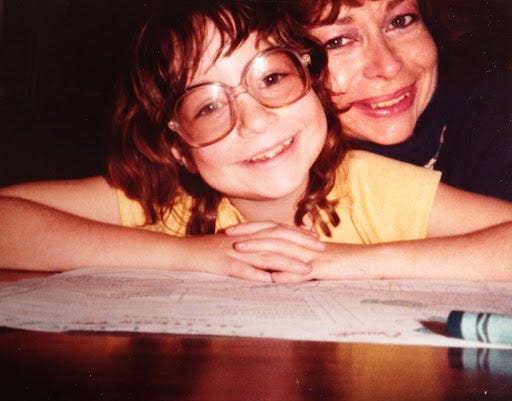This is another in our new series: Nerdy Notes: Science in Story & Verse
In these posts, our Nerdy Girl scientists and clinicians will share personal stories, insights, poetry, and more. While these posts may be lighter in terms of numbers and figures, they will still be rooted in our tradition and commitment to providing accessible and trustworthy information.
Stay inspired, stay creative,
Those Nerdy Girls&+
Social safety nets save lives and help people grow. See what’s possible…
In 1977, I received my first bit of help from the government. I was two years old. It was help in the form of food, shelter, and medical care.
My mother had been parenting me with a U.S. veteran who suffered from PTSD. He did not have access to adequate mental health care so he self-medicated with alcohol and drugs. A person born with a gentle spirit, he became broken and rageful.
After a particularly dangerous incident with my father, my mom gathered a few necessities and made her way to what was then called a shelter for battered women and children. The shelter operated from donations and state money. The state was able to support this and other types of safety nets for its most vulnerable citizens in large part because of help from the federal government.
For the next 16 years, I got glasses, immunizations and other medical care, food, housing assistance, clothing, counseling, and public education (shout out to Los Angeles Unified School District), all with the help from local, state, and federal government.

With this help, I was able to survive…and thrive.
I am the first person in my family to:
graduate from college
earn an advanced degree
buy a home
pay for a kiddo’s college education
All along the way, the local, state, and federal governments have been there to help lift me up. Pell Grants, Stafford Loans, low-interest loans for 1st time home owners. I also got help from WIC (Women, Infants, and Children – the program that helps nourish families with low income until a child is five years old) until I was able to finish my schooling and begin my career.
With this help:
I was able to break the generational cycle of poverty.
I was able to become a registered nurse and take care of babies in the newborn nursery and the NICU.

I was able to become a Family Nurse Practitioner and help people get treatment for substance use disorder, help folks with mental health issues find trauma-informed care, and help people stay HIV infection free with the help of PrEP.
I was able to raise a family and keep them fed and housed and loved under one roof–the same roof they came home to as newborns– for the last almost twenty years.


I was able to become Executive Director of this amazing organization, Those Nerdy Girls, which provides trustworthy science and health information to you.
The people being lifted up by the local, state, and federal governments aren’t some other people.
They are you.
They are me.
This week our congress is voting on a bill that will have an impact on all of our safety nets, our health care access, our scientific progress, our tax bills, our grocery bills, and our overall well-being.
Please take a look today at the bill from these non-partisan resources below and reach out to your congress people (tools also below), letting them know about the impacts that are most meaningful for you, your family, and your community.
Please share the information you learn with your friends and family, especially if they have different political views from you. This is not about which political party you are registered with, this is about quality of life for all of us.
Every single
One of us needs every
Single one of us.
Love,
Those Nerdy Girls &+
Resources to learn about the congressional bill that is being decided this week:
Committee for a Responsible Federal Budget
(Items in black show cuts to programs and services)
Breaking Down the One Big Beautiful Bill
Congressional Budget Office
Estimated Budgetary Effects of an Amendment in the Nature of a Substitute to H.R. 1, the One Big Beautiful Bill Act, Relative to the Budget Enforcement Baseline for Consideration in the Senate [Archived Link]
How to reach your congress person
Here is a tool for submitting your comments online
What to say when you reach their staff:
Sample Script for when you reach your congress person:
Hello, my name is (name) and I’m a constituent of Representative/Senator (their name). I live at (your address). I am calling today about (state the issue/bill/etc.). As a (scientist, nurse, parent, elder, college student, artist, veteran, government worker, etc), I am deeply (in support/against) this issue because (state how this issue affects you). I hope that (Member of Congress) keeps this in mind. Thank you for your time.
Other useful resources:
How to find out the biases of your news source


